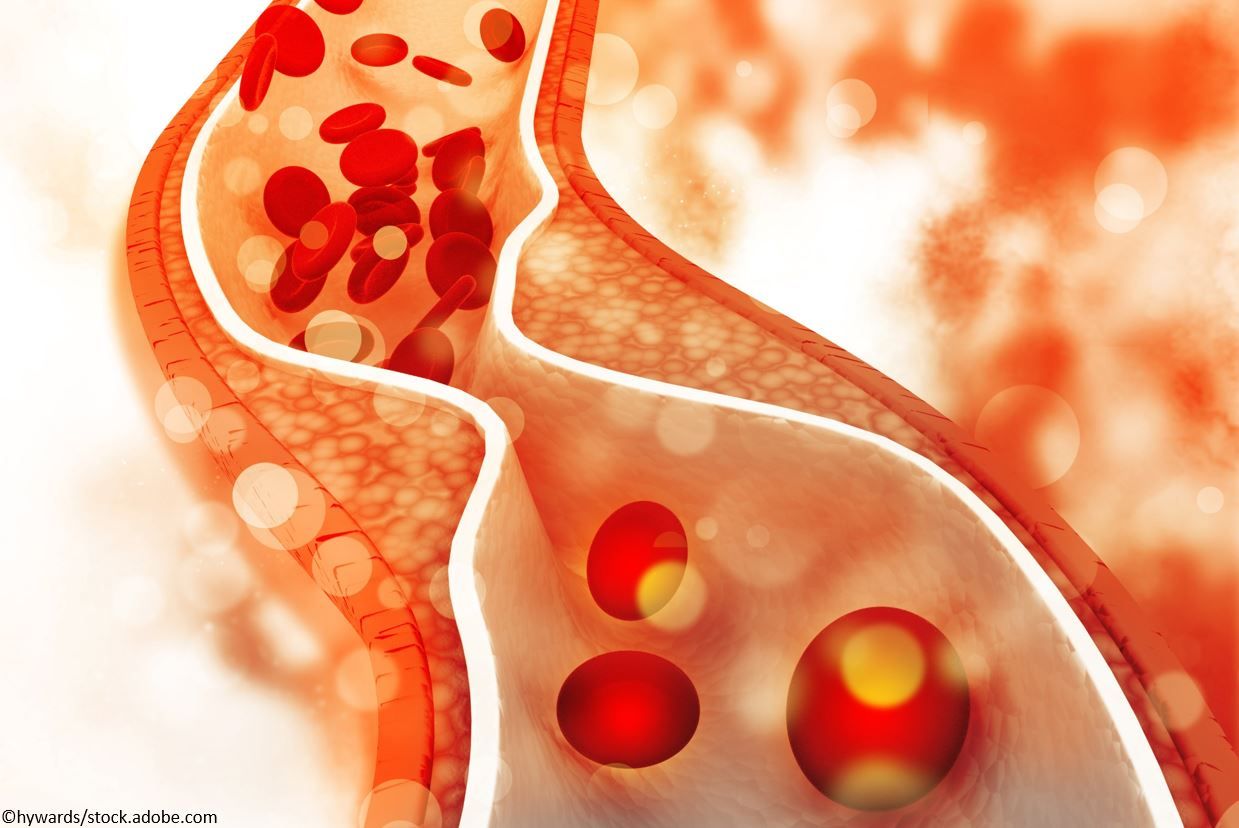- Clinical Technology
- Adult Immunization
- Hepatology
- Pediatric Immunization
- Screening
- Psychiatry
- Allergy
- Women's Health
- Cardiology
- Pediatrics
- Dermatology
- Endocrinology
- Pain Management
- Gastroenterology
- Infectious Disease
- Obesity Medicine
- Rheumatology
- Nephrology
- Neurology
- Pulmonology
Oral PCSK9 Inhibitor Significantly Reduced High Levels of Cholesterol in Phase 1 Trials
AHA 2021: New research showed MK-0616, an investigative oral PCSK9 inhibitor, was associated with a near 65% decrease in LDL-C.

The first version of an oral PCSK9-inhibitor was well tolerated and effective at reducing high levels of LDL-C, showed results from two phase 1 trials reported at the American Heart Association (AHA) Scientific Sessions 2021.
Unlike PCSK9 inhibitors currently available by injection only, the new medication—named MK-0616—is an orally bioavailable PCSK9 inhibitor.
“We used novel technology and medicinal chemistry to identify a molecule — MK-0616 — that can be administered orally to block the PCSK9 protein, subsequently helping lower ‘bad’ LDL cholesterol that can build up in arteries,” said lead author Douglas Johns, PhD, clinical director of translational medicine/clinical pharmacology at Merck Research Laboratories, in an AHA press release.
The first randomized, double-blind, placebo-controlled trial assessed safety and tolerability of MK-0616 in 60 healthy male volunteers aged 18 to 50 years who received MK-0616 in single oral doses ranging from 10 mg to 300 mg; 23 men received at least 1 dose of placebo. Results showed that at all doses, MK-0616 inhibited and reduced levels of free PCSK9 in the blood by over 90% compared with baseline.
In the second study, 40 men and women aged 18 to 65 years with a baseline LDL-C of 60 to 160 mg/dL while on statin treatment for at least 3 months were randomized 3:1 to receive a once-daily oral dose of MK-0616 (10 mg-20 mg) or placebo in addition to their current statin therapy for 14 days.
The baseline mean LDL-C was approximately 87 mg/dL and 85% of participants received moderate or high-intensity statins, according to the study abstract. At 14 days of treatment, MK-0616 reduced participants’ LDL-C by approximately 65%. By contrast, placebo-treated participants exhibited less than 5% LDL-C reduction from baseline.
“I believe this is the first report of successful oral absorption of a synthesized cyclic peptide like MK-0616 in people,” said Johns. “We were pleased that it appeared to be consistently absorbed and concentrated in patients’ blood, and that it reduced cholesterol levels so effectively.”
More research is needed to confirm these results due to limited clinical experience with MK-0616, noted Johns.
Reference: Johns DG, Almonte Y, Bautmans A, et al. The clinical safety, pharmacokinetics, and LDL-cholesterol lowering efficacy of MK-0616, an oral PCSK9 inhibitor. Presented at the American Heart Association Scientific Sessions 2021.
